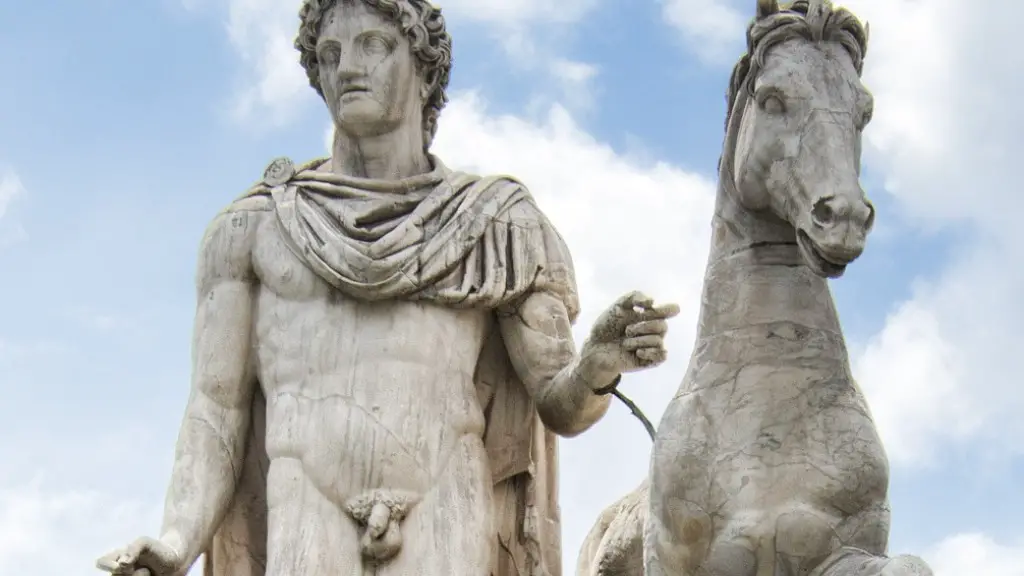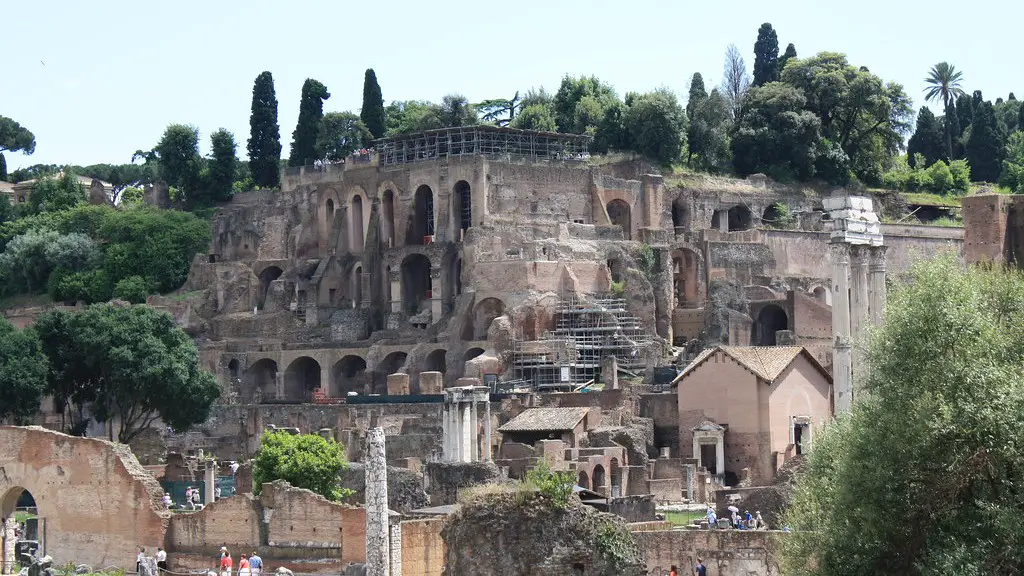Ancient Rome was for centuries a political, cultural and administrative superpower, but what language did its citizens and visitors speak? Latin, undoubtedly, was the official language and the most common one heard. Yet, there were other tongues in use in Ancient Rome, as the city was of incredible cosmopolitan character in its day.
As the vast Roman Empire incorporated and interacted with foreign countries, other languages began to spread throughout the area. Greek, for example, was the language of science, philosophy and Christian Scripture. Many literary and scientific works were written in Greek and it was important enough to be the language of diplomacy and commerce. In fact, some hypothesize that the Christian religion was first brought to the city by Greek merhants.
In addition to Latin and Greek, many other languages were embraced in Ancient Rome. Nearby Mediterranean powers spoken languages like Oscan, Umbrian, and Volscan became increasingly common across the Empire. Though most of these languages have since died out, their influence can still be found in modern Italian.
Still, it was Latin that was the primary language of communication in Ancient Rome. Its presence was so pervasive that, at points, it was the language of numerous administrators, governors, soldiers and citizens who had not been born in the city. Even if someone was born in a foreign city or spoke a different language, the societal expectation was for them to become fluent in Latin and switch to being a Latin speaker.
Latin affirmed the dominance of the Roman Empire and would subsequently influence the development of the Romance languages, which include French, Spanish and Italian. Latin is so closely intertwined with the classical past of Rome that it is regularly studied and taught in universities around the world.
In the modern era, Italian has taken the role of most widespread language in the homeland of Ancient Rome. Italian has been commonly spoken in Italy for many centuries and is used as the official language in the modern Italian state. Languages like Sardinian and Latin have also been recognized as official in some areas of Italy, but Italian remains the language of the majority.
Romance Language Development
Languages in the Romance family are variants of Latin that developed as Latin was spoken in various regions of the former Roman Empire. By the year 800, the language was already distinguished from the classical and was used to propagate Christianity throughout Europe. This language was a great tool for uniting the diverse populations and forming a foundation for cultures that still exist today.
The process of Romance language evolution began when Roman soldiers returned home after completing military duty and mayors relocated to different provinces. As they interacted with different populations and cultures, they adopted expressions and words from local languages and incorporated them into Latin, gradually creating new dialects.
Each region developed a dialect with linguistic and characteristic variations that unintentionally gave birth to the modern Romance languages. Spain and Portugal were the first two countries to adopt Latin-derived languages and then, over the centuries, Romance languages spread to other countries, primarily through colonisation.
Empire Expansion and Variants
As the Roman Empire reached its peak, Latin was spoken as far away as present-day France, Belgium, Switzerland, and Germany. Latin, however, underwent evolution in each of these locations — for instance, the Latin spoken in Gaul, where France and some of its neighboring countries are located, developed into what is known today as French.
In Hispania, present-day Spain and Portugal, a form of Latin known as “Vulgar Latin” was the language of choice. This Latin evolved quickly, with vernacular words and expressions being introduced from the native languages of the area. Time, along with its interaction with other languages, would give birth to different Romance languages.
Linguists have very accurately reconstructed Vulgar Latin as it was spoken in Hispania thanks to existing recordings of the language in literature, historical documents and inscriptions. This abundance of material also allows linguists to trace the development of today’s Spanish.
Unique Characteristics
Romance languages symbols are derived from Latin, thus the two language families share the same base. Thus, one can understand how Romance dialects can possess some common characteristics even though they have developed in different regions and times.
Though these languages are distinct, they also have many quirks in common. Nouns, for instance, are gendered in each language, and adjectives must agree with the noun’s gender. Words also tend to be pronounced similarly among each Romance language. All of these qualities provide linguistic continuity among the Romance languages.
Another trait shared by Romance speakers is that they are very proficient with languages and can easily learn a Romance language if they are already fluent in one.
The Resilience of Latin
Despite its age, Latin remains audible today. The Catholic Church has been hailed for their dedication to Latin, which continues to be used in mass, scattered phrases in literature and to some extent in academia. Latin was even declared an “official language” of the European Union in 1993.
Latin is an enduring language that has evolved over time. Its impact on cultures, languages, literature and art throughout history is undeniable. It is both an object of study and admiration for students and experts alike, and it continues to be a major subject in higher education.
Latin in Popular Culture
Latin in today’s culture is less popular than it was throughout history, however, there are still several forms of media where Latin is seen, heard and discussed. TV shows, films, and fashion lines commonly cite Latin, and it is even found on occasion in music lyrics and song names. The songwriter Pharrell Williams, for instance, named his first solo album “In My Mind” after a line in the Latin phrase Per me per semper.
The phrase “Carpe Diem,” often translated as “seize the day,” is a popular Latin phrase still used in the English-speaking world. Derived from “Gather ye rosebuds while ye may,” it encourages individuals to make the most of their time and live life to its fullest.
Latin, a language already so old, continues to linger in the modern age, a testament to the high value and power attributed to it by generations of Romans and citizens of other countries. The presence of Latin and its undeniable influence are a reminder of Rome’s glory days and its enduring legacy.
Continued Education and Promotion
Despite the English language’s tendency to be the primary language of instruction, the Latin language is still taught in schools and universities worldwide, especially in Europe and in the Catholic Church. Latin is necessary for anyone hoping to study the classics, especially ancient Roman plays, poetry, and other literature.
The Italian government and the Italian Ministry of Education also place a great emphasis on Latin’s continued education. Latin is considered an important key to understanding the roots and development of modern Italian and is increasingly seen as an important part of school curricula. Statistics show that a rising number of Italian students are studying Latin.
Various Latin clubs can be found in schools, universities and even churches, to gather people interested in experiencing the language and its cultural heritage. Most clubs offer students a platform to share and learn about Latin, improving their language skills and giving them the chance to open their minds and explore the language further.
The Preservation of Latin Language
As the poetry, literature and monuments of the former Roman Empire attest, Latin was a crucial part of Ancient Rome. Despite being long gone, the long-dead language’s influence reverberates through the Romance and Germanic languages that modern Italians and Europeans speak.
Various international and private organisations today are responsible for the preservation of Latin, by providing resources to teachers, students and anyone interested in studying the language and its history. Organisations like the Massachusetts-based National Latin Exam and the Universitate Centrale de Latina, in Portugal, are being formed to help interest in and awareness of the language among the public.
These organisations are instrumental in providing Latin education and resources to students of all ages and in promoting the further study of Latin by providing information about universities, scholarships, books and other informational materials.
Cultural Impact
Though Latin is no longer used extensively among modern European cultures, its presence is deeply rooted in the fabric of contemporary society. Latin remains very much alive in society and culture: from knowledge, education and religion to culture, literature and art, the language is still very much in use.
Latin has also inspired many modern languages and contributed in significant ways to the development of language, culture and education throughout history. Its unique approach to grammar and language has shaped how we learn and communicate today. Words like these are often used today in order to emphasize our speech; for example the terms vox populi (the voice of the people), prima facie (first impression), post mortem (after death) are just a few commonly used phrases.
Latin’s presence is yet another testament to the viability of the language and the classial past of Ancient Rome.





